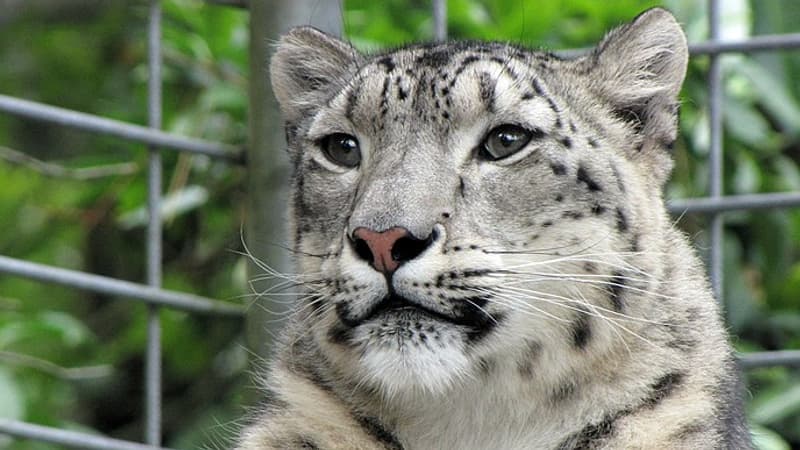The first nationwide census of snow leopards in Nepal estimated almost 400 individuals the population of these feline elusive belonging to a threatened species, said wildlife specialists on Tuesday, April 22.
The loss of housing, climate change and poaching had a severe impact on snowproof panthers (or snow leopards) in Asia, which appear in the “vulnerable” species of the International Union for the Conservation of Nature (IUCN).
However, the survey offers a ray of hope, confirming that the count corresponds to the highest previous estimates.
“It’s a historic step”
These felines with a thick scientific gray fur, which offer effective camouflage in the mountainous territories where they evolve, are difficult to detect, which makes observations on the ground very complicated. His great legs, real natural snow roots, facilitate his flight.
“This is a historical stage” of the preservation of the snow leopard in Nepal, Harribhadra Acharya, an ecologist chief of the National Parks Department and the preservation of wildlife, told AFP.
“This is the first time we get authentic data thanks to the considerable work of the researchers,” he said.
397 Snow Leopardos seen
In total, 397 snow leopards were deduced, identified thanks to the cameras that detect genetic movements and analysis in seven key areas.
This work offers the most complete estimate of the number of snow panthers in Nepal, previously evaluated between 301 and 400 by IUCN.
The snowmans are the least studied felines in the world due to their low population and remote mountain areas where they evolve.
“Nepal has only 2 % of the territory of snow leopard in the world, (but) we protect 10 % of the estimated total population,” Ghana S Gurung, representative of WWF Nepal, told AFP.
Nepal is the second smallest country, after Bután, with respect to the habitat of the snow leopard, but it is the fourth with respect to the population size, he emphasized.
Many environmental defenders are still concerned about the threats raised by climate change and the development of infrastructure that worries the natural habitat of these felines.
Nepal has been noticed in the world for its efforts for the protection of wildlife that allowed several species, including tigers and rhinocerontin, escape from extinction. The population of Tigres in Nepal has tripled since 2010, reaching 355 people
Source: BFM TV


